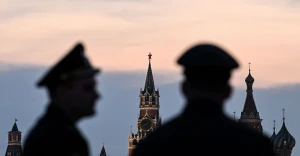
Russian economy faces "overheating," according to British intelligence
Rising inflation in Russia, driven by increased consumer prices, particularly for food and fuel, could result in higher expenditures to finance the war in Ukraine
This observation is outlined in the UK Defense Ministry report.
In September 2023, Russian inflation climbed to 6%, up from 5.3% in August of the same year, primarily due to the surging consumer costs associated with food and fuel.
The report predicts that "higher inflation is almost certain to increase the costs of funding Russia's war in Ukraine."
In response, the Central Bank of Russia (CBR) raised the base interest rate by 2 percentage points, setting a new base rate of 15%. The British Ministry of Defense noted that this rate was the highest since May 2022.
The report suggests that the Central Bank of the Russian Federation is likely to maintain these high-interest rates until 2024. This could raise borrowing costs for Russian consumers and potentially impact the Russian government's debt servicing expenses.
“Due to increasing demand, partially due to large increases in defense spending, along with continued pressures of a tightening labor market, the Russian economy is likely at risk of overheating. This is highly likely to ensure inflation in Russia in 2024 remains above the target rate of 4 percent, according to British intelligence.
Experts also indicate that sustained high inflation is likely to reduce real government spending, particularly in areas like social security where expenditures are rising more slowly than inflation.
"This further illustrates the reorientation of Russia's economy to fuel the war above all else," concluded the report.
- Recent reports have revealed that the Ministry of Finance of the Russian Federation plans to allocate 30% of the state budget's total expenditures to the war in 2024, signaling Russia's readiness for a multi-year conflict with Ukraine.
- British intelligence also reports that Russian budget spending increasingly emphasizes the war in Ukraine, but continuous growth in these expenditures is expected to contribute to inflationary pressure within the Russian Federation.
- News














































